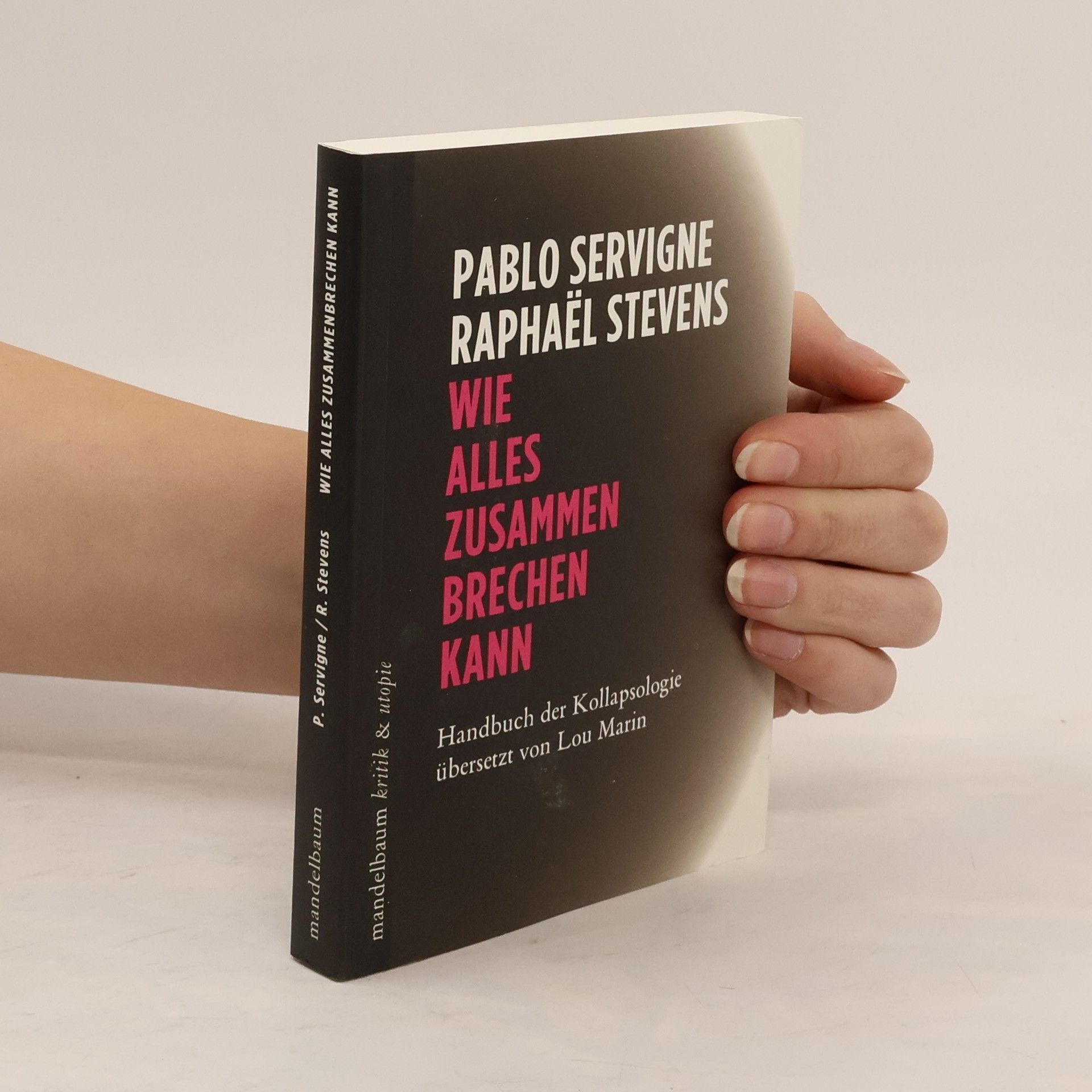How Everything Can Collapse
- 250 stránek
- 9 hodin čtení
A brave book that confronts directly the very real possibility that our civilization will collapse--
Pablo Servigne je francouzský autor a lektor, jehož dílo se zaměřuje na ekologické přechody, agroekologii, kolapsologii a kolektivní odolnost. Jeho psaní zkoumá složité propojení mezi přírodními systémy a lidskou společností a hledá cesty k udržitelnější budoucnosti. Servigneho přístup je hluboce zakořeněn v pochopení vzájemné závislosti ekologických a společenských výzev. Nabízí čtenářům promyšlené postřehy o tom, jak můžeme čelit současným krizím a budovat odolnější komunity.




A brave book that confronts directly the very real possibility that our civilization will collapse--
In the merciless arena of life, we are all subject to the law of the jungle, to ruthless competition and the survival of the fittest – such is the myth that has given rise to a society that has become toxic for our generation and our planet. But today the lines are shifting. A growing number of new movements and thinkers are challenging this skewed view of the world and reviving outdated words like ‘altruism’, ‘cooperation’, ‘kindness’ and ‘solidarity’. Our era is rediscovering with a sense of wonder that this jungle also has a strong scent of mutual aid. A close look at the wide spectrum of living beings reveals that, at all times and all places, animals, plants, micro-organisms and human beings have practised different forms of mutual aid. And those who survive difficult conditions best are not necessarily the strongest, but those who help each other the most. Through a multidisciplinary inquiry, Pablo Servigne and Gauthier Chapelle explore a vast, forgotten continent of mutual aid in order to discover the mechanisms of this ‘other law of the jungle’. In so doing, they provide a more rounded view of the world of living things and give us some of the conceptual tools we need to move beyond the vicious circle of competition and self-destruction that is leading our civilization to the verge of collapse.
The critical situation in which our planet finds itself is no longer in doubt. Some things are already collapsing while others are beginning to do so, increasing the possibility of a global catastrophe that would mean the end of the world as we know it. As individuals, we are faced with a daily deluge of bad news about the worsening situation, preparing ourselves to live with years of deep uncertainty about the future of the planet and the species that inhabit it, including our own. How can we cope? How can we project ourselves beyond the present, think bigger and find ways not just to survive the collapse but to live it? In this book, the sequel to How Everything Can Collapse, the authors show that a change of course necessarily requires an inner journey and a radical rethinking of our vision of the world. Together these might enable us to remain standing during the coming storm, to develop a new awareness of ourselves and of the world and to imagine new ways of living in it. Perhaps then it will be possible to regenerate life from the ruins, creating new alliances in differing directions – with ourselves and our inner nature, between humans, with other living beings and with the earth on which we dwell.
Und wenn unsere Zivilisation zusammenbrechen würde? Nicht etwa in einigen Jahrhunderten, sondern noch zu unseren Lebzeiten? Weit entfernt von den Voraussagen der Maya und anderer millenaristischer Eschatologien kündigt eine größer werdende Anzahl von Autor:innen, Wissenschaftler:innen und Institutionen das Ende der industriellen Zivilisation an, das heißt das Ende der Bedingungen für ein Leben, wie wir es bis jetzt gekannt haben. Pablo Servigne und Raphaël Stevens erläutern die Ursachen für einen möglichen Zusammenbruch und geben uns einen multidisziplinären Überblick zu einer Forschungsrichtung, die sie »Kollapsologie« nennen. Heutzutage hat die Utopie die Seiten gewechselt: Utopisch ist von nun an diejenige Person, die glaubt, alles könne so weitergehen wie bisher. Der Zusammenbruch steht am Horizont unserer Generation, er ist der Beginn ihrer Zukunft. Was wird danach kommen? Über all das muss nachgedacht und eine Vorstellung entwickelt werden – und wir müssen unser Leben danach ausrichten … Mit einer Einleitung von Fabian Scheidler